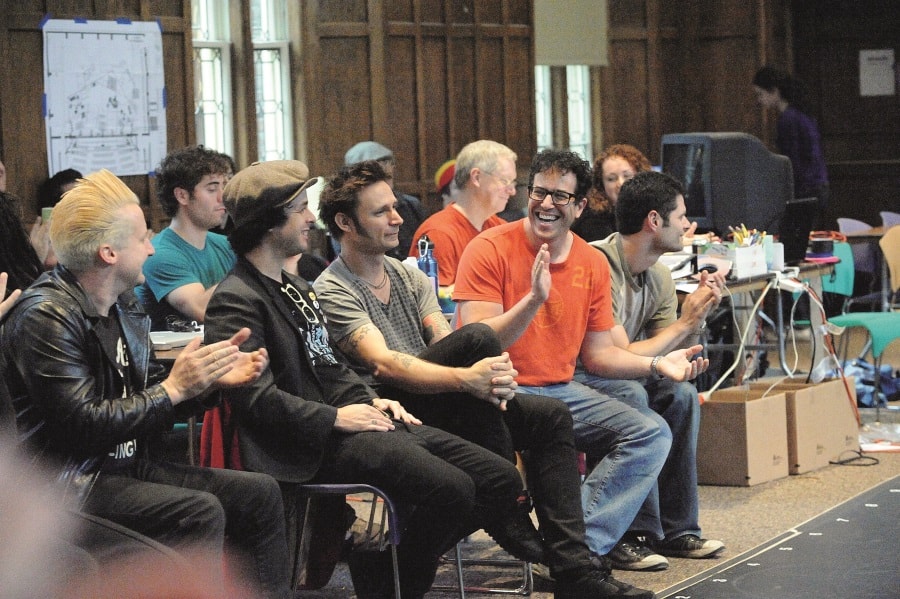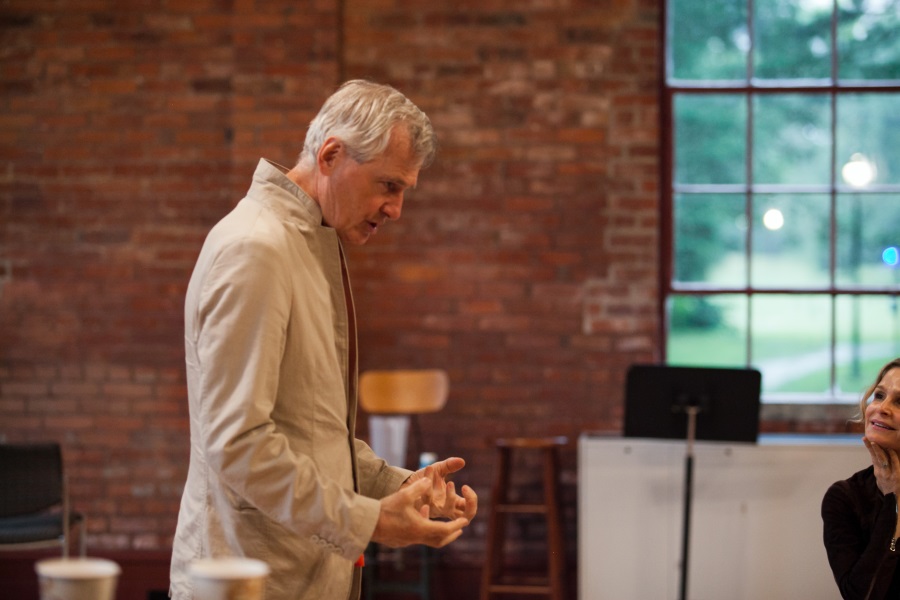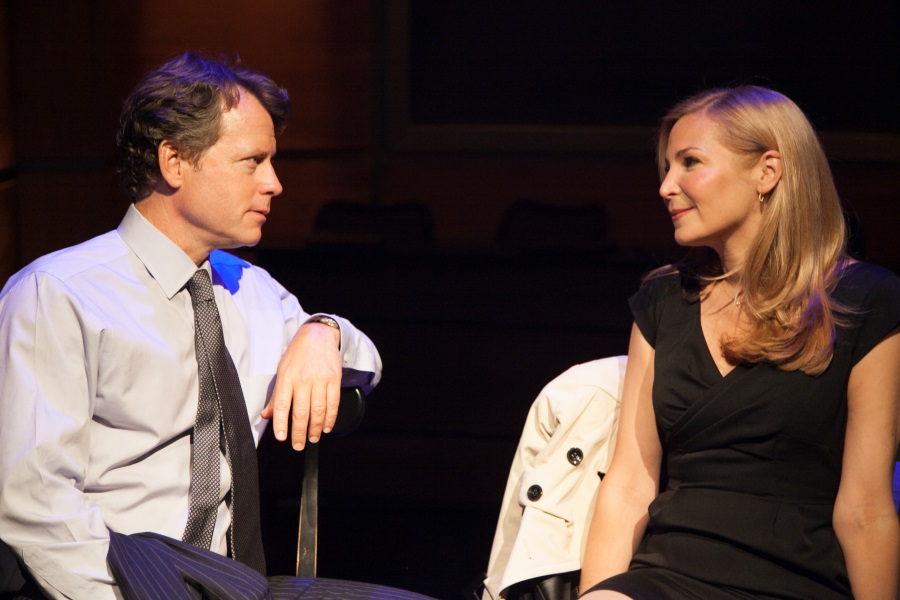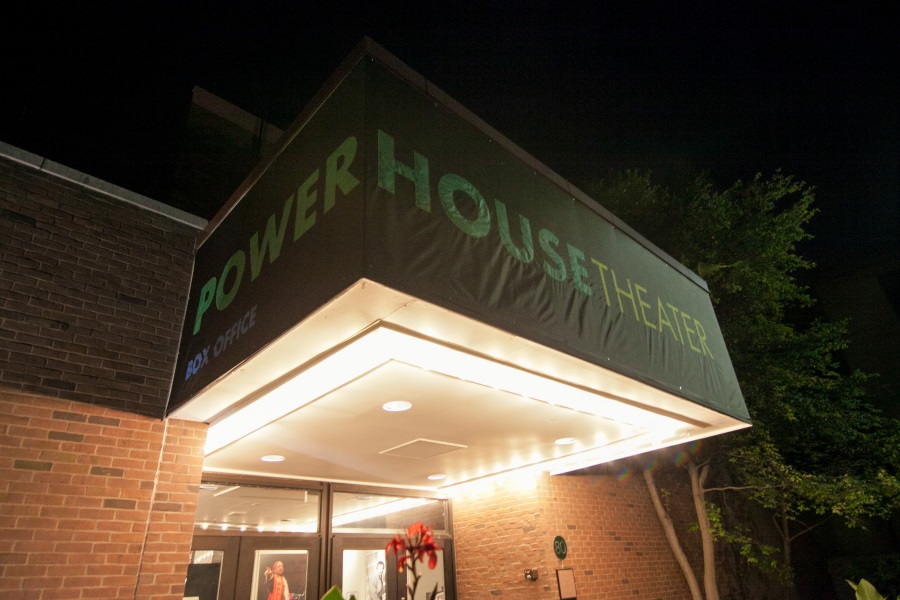POUGHKEEPSIE, N.Y.: Each of the nation’s new-play development centers has its unique characteristics and modus operandi. At New York Stage and Film, a 30-year-old new-work center for plays, musicals and even movies on the campus of Vassar College in Poughkeepsie, the relative proximity to New York City has given its summer program a certain cachet without it becoming an all-industry showcase. The center’s Powerhouse season—named for the main theatre on the Vassar campus—features a mix of productions and readings that puts it, among its East Coast peers, somewhere between the bare-bones format of the Eugene O’Neill Theater Center’s annual playwrights’ conference and the fully staged summer season at Williamstown Theatre Festival.
This summer, the lineup runs June 26–Aug. 2 and features a new play by Keith Bunin, The Unbuilt City, as well as a world premiere from the Debate Society, The Light Years, written by Hannah Bos and Paul Thureen and directed by Oliver Butler. There will also be readings of new plays by Ayad Akhtar, Beth Henley, Colman Domingo, Nicky Silver and others, and workshops of new musicals from Duncan Sheik, Stephen Trask and Michael John LaChiusa.
American Theatre asked a few of the company’s frequent visitors—director Michael Mayer, playwright John Patrick Shanley and actor/screenwriter Jennifer Westfeldt—to talk about what keeps them coming back to New York Stage and Film.

Michael Mayer: Choose Your Own Adventure
When I had just moved to New York and still wanted to be an actor, I remember reading a big article about New York Stage and Film in the New York Times. It had pictures of Ken Olin, Patty Wettig, Leslie Urdang and Max D. Mayer, and it felt like “all these people that I’m watching on TV right now are making theatre up in Poughkeepsie with no money and just for a love of the art.” That stuck with me, and I thought, “God, that would be amazing to have a place like that to go! Someday.”
Years later I became a director, and wouldn’t you know—one of the first out-of-town places I ended up working was New York Stage and Film. I had done a couple of readings for them, and then finally in 1996 I did Side Man—that was the first time I had the full-on experience of living there, rehearsing there and being surrounded by artists who were young and old and familiar to me. Meryl Streep was up there doing a reading, and at the same time I was watching the kids in the apprenticeship program doing Shakespeare.
Being on the Vassar campus takes you to a magical place in your soul right away—it’s this oasis, but then there’s work happening and everyone is there for the same reason. The greatest equalizer is process. In the city, everything is so often just about trying to get the work you’re making seen—we’re hustling all the time, especially with new plays. There are so many mice and so little cheese. It always feels like a struggle. Up there, it was revelatory because it was really about the work, not about what the next step would be. And that’s why I kept coming back.
There is no one way anything happens up there; you can choose your own adventure. Everyone there is not only prepared and willing to help your adventure happen your way, but is eager to do so. The bigger the challenge, it seems, the happier they are.
Your projects require different things at different stages. When you’re a young director, you’re trying to put your stamp on stuff. With Side Man, it was the first time I really felt like I was there to serve the play. When I was working on American Idiot, I went up and we worked for two weeks on one section of the show and didn’t show it to anybody. It made all the difference. So we walked into rehearsal at Berkeley Rep with that piece in place, which was a real boon to us. I also did a big workshop that resulted in a beautiful reading of my reimagining of On a Clear Day You Can See Forever. As it turns out, the most felicitous version of that project ended up being the one that we did at Stage and Film—we did it on Broadway, and it didn’t work as well as it had up there.
I went up with Brooklynite two summers ago, and we wrote the second act while we were there. It was so great for us to have an audience to respond every night while we were changing things.
The after-hours fun is crucial to the experience, as well. My Idiot cast was fairly idiotic—the campus police were involved at one point. They were spending all day playing these punks, and at night they were staying very much in character, blowing off steam. The sex, drugs and rock-and-roll of it all is pretty significant, however you translate any of those elements. The deep, fast connections with people are so intoxicating, regardless of whether you’re sober or not. It’s a reminder of what a small world we live in—you just end up having connections that are like this big family tree. Everyone’s living together. It’s a great leveler. Everyone’s an artist and nobody’s a star there. It’s a fabulous feeling.

John Patrick Shanley: The Right Kind of Judgmental
The first play I did there was Savage in Limbo, back in ’84. I had done Danny and the Deep Blue Sea, and that made a bit of a splash, and then I had written Savage in Limbo, and nobody wanted to do it! These three kids, Max D. Mayer, Leslie Urdang and Mark Linn-Baker, who had just graduated from Yale, had started a little theatre, which originally was called the Double Image Theatre, and they said, “We’d like to do it.” Linn-Baker wanted to direct it, and I signed on and went to Vassar with them and had an extraordinary experience. That started a very long collaboration, which continues to this very day.
The theatre’s identity is so wrapped up with Vassar’s identity, and Vassar hasn’t changed that much. It’s a thousand-acre campus, and it’s like this special Garden of Eden where you have this bonding experience you rarely get in New York City. It’s definitely unplugging from the world of competition and plugging into the world of art creation.
I’ve done like a million plays there. I wrote and directed The Danish Widow there last season, with Kyra Sedgwick. I did readings of Doubt. I did Cellini, which was an enormous effort. That was the first year Johanna Pfaelzer was running the place, and she was heroic in her attempts to satisfy all the needs of a show that has 35 characters in Renaissance costumes. She almost had a nervous breakdown, but she was absolutely steadfast and came through on every particular.
I also did a musical there called Romantic Poetry, which was subsequently produced in New York at Manhattan Theatre Club to universally damning reviews. I’ve tried everything there, from absolute realism to fanciful musicals to period dramas. And they’ve just taken the ride with whatever I’ve been doing.
People think that if you’ve achieved a certain level of success in theatre, you can do whatever you want—but in fact, most of the time, nobody wants to do anything. When you want to try something that is a little outside of the box, all kinds of people disappear. The one group that always seems to remain unblinking, standing there and open to the idea, is New York Stage and Film. There are no critics, though a lot of people from the city come up, so you get feedback in a way that is not judgmental.
Playwrights are homeless people, and New York Stage and Film has definitely provided me with continuity and a feeling of home. They’re kind of irreplaceable. I don’t really know where I would have gone otherwise.

Jennifer Westfeldt: Theatre Camp for Grownups
My first summer at New York Stage and Film was in 2008. I was offered a wonderful role in a really interesting play, Finks, written by Joe Gilford, based on his mother and father, Madeleine Lee Gilford and Jack Gilford, who were both blacklisted during the McCarthy Era. It was a really worthy topic and such a wonderful process, where the script was changing every day. Those conversations would extend just about every night to The Beech Tree (the restaurant/bar that NYSAF overtakes each summer), and we would all end up talking about the rehearsal process or about the performance we’d just seen of somebody else’s piece. It feels like theatre camp for grownups.
I did Stephen Belber’s The Power of Duff with Greg Kinnear two summers later, and I went on to do the play at the Huntington Theatre in Boston last year. I’ve done a lot of work on new plays in the city, but there’s a different kind of freedom and risk at Stage and Film given the fact that no critics are welcome — it’s entirely about the process. When you work on a new play in New York, you know you only have a certain number of weeks to make changes before technical elements need to freeze and before the critics come. In Poughkeepsie, people are rewriting a whole act after a night’s show and trying it out in the next night’s performance!
In 2010, we did a four-day workshop of my screenplay Friends with Kids, which culminated in a staged reading. It was a fantastic opportunity to work on the script before we shot the film later that year. My films are all very dialogue-driven, so the process on character and story worked in a similar way to their process on plays. I was acting in it as well, and directing the reading, so it was also great to feel that whatever your needs are as an artist, Stage and Film is there for you. Even if I’m unavailable to work during a season at NYSAF, I’ll always come up to see something and spend a weekend, because I can’t let a summer pass without being there.
One of my favorite memories was during the Friends with Kids workshop. I came up on a Friday night with a few of the great actresses who were doing my workshop— and I really wanted them to get to see a show so that they could understand what Stage and Film was all about. So Johanna Pfaelzer helped us get seats for On a Clear Day. It was a packed house, and we came to learn through Johanna’s curtain speech that Anika Noni Rose had had a family emergency and had to leave suddenly. And another wonderful actress, Alysha Umphress, had been called that afternoon to come do the role. Director Michael Mayer asked her, “Can you get in a car immediately and come perform the lead of this tonight in Poughkeepsie?” She literally was reading the script on her iPhone in the car on the way, and we saw her that night, and she was magnificent. There was such an electricity in that audience, knowing that this girl had just found out that afternoon she was going to be doing the show. She was flawless—and we got to tell her so (and gush) later that night at The Beech Tree. It was such a testament to the spirit and spontaneity and magic of Stage and Film.


